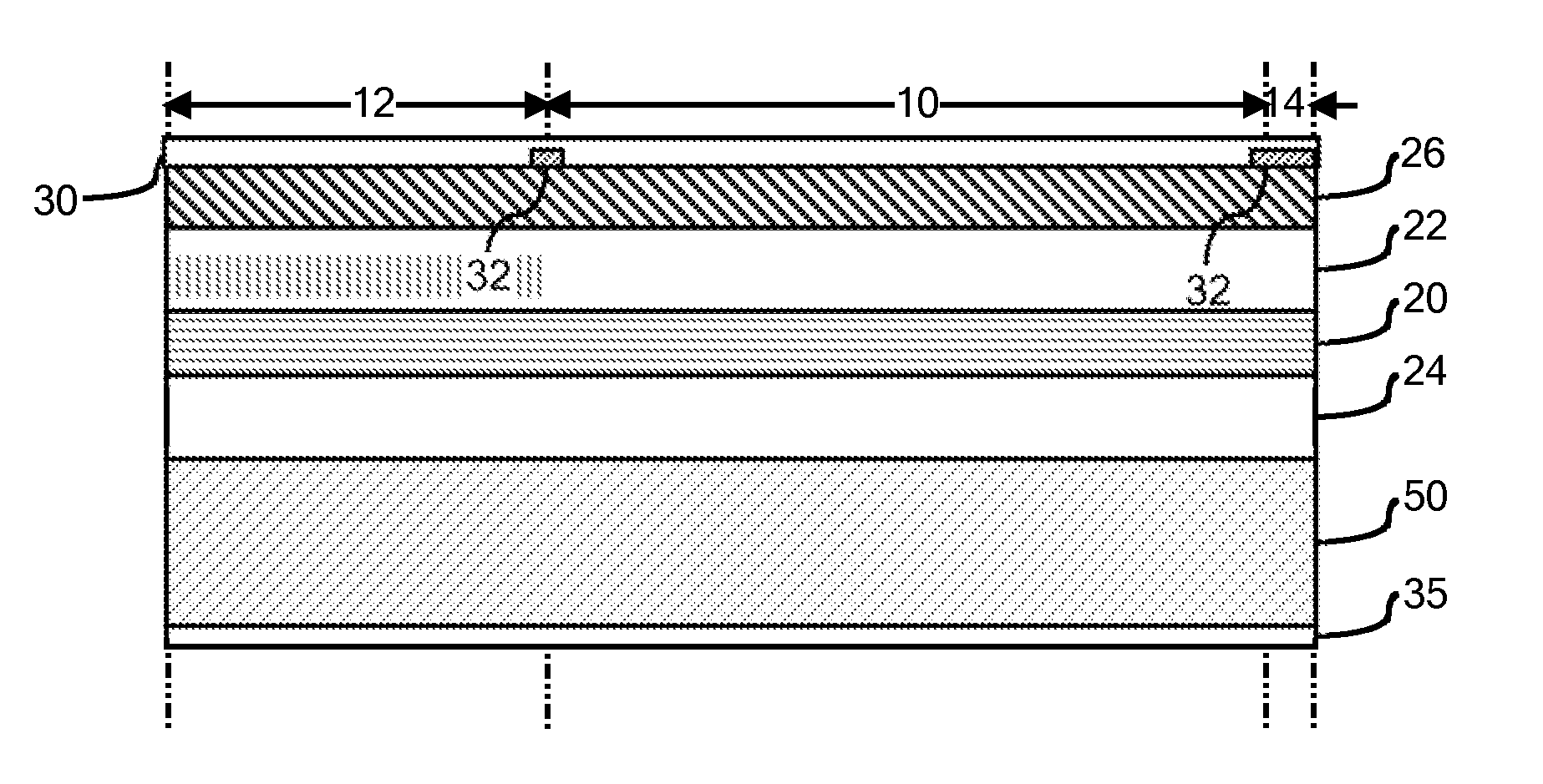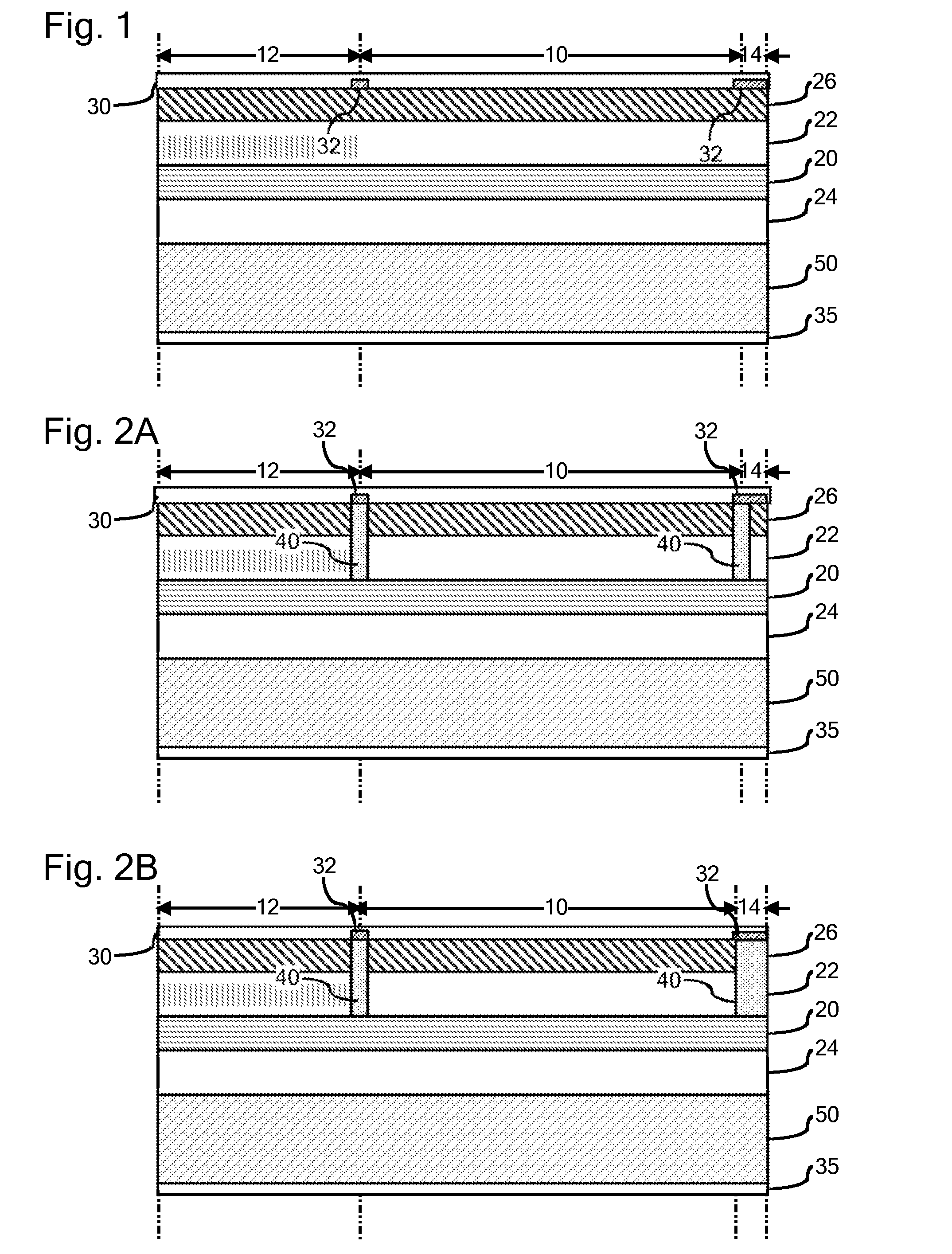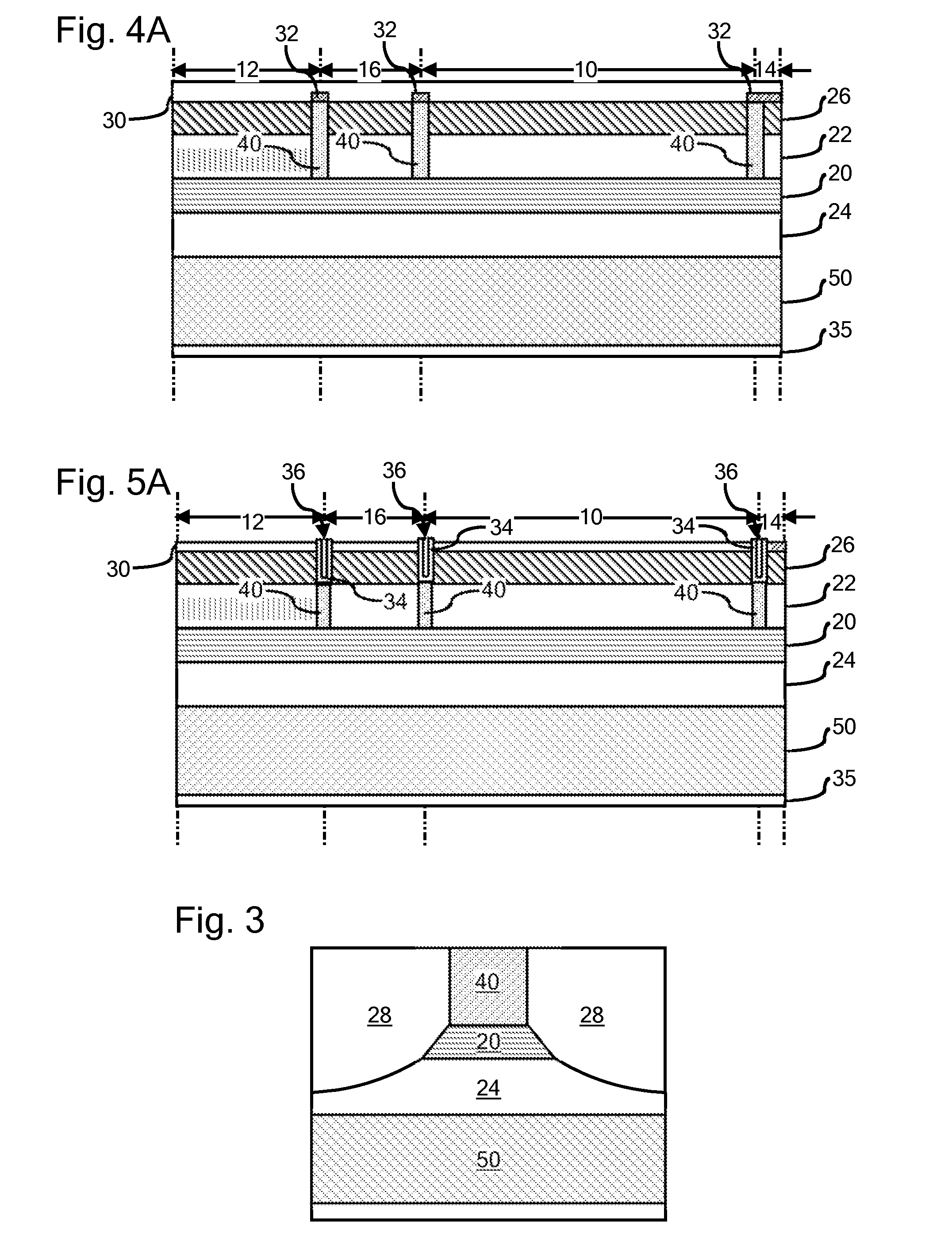P-type isolation between qcl regions
- Summary
- Abstract
- Description
- Claims
- Application Information
AI Technical Summary
Benefits of technology
Problems solved by technology
Method used
Image
Examples
Embodiment Construction
[0017]Although the concepts of the present disclosure enjoy applicability to any type of multi-section QCL, specific embodiments of the present disclosure are illustrated herein with reference to DBR quantum cascade lasers. Nevertheless, the present disclosure and accompanying claims should not be limited to DBR lasers or to the specific materials mentioned in the present description, unless otherwise expressly noted. For example, and not by way of limitation, FIG. 1 is a schematic illustration of a DBR quantum cascade laser comprising an active gain section 10, a wavelength selective section 12 commonly referred to as a DBR section, and an output window section 14. As will be appreciated by those familiar with DBR quantum cascade lasers, the active gain section 10 of the DBR quantum cascade laser provides the major optical gain of the laser while the wavelength selective section 12 provides for wavelength selection. For example, although the wavelength selective section 12 may be p...
PUM
 Login to View More
Login to View More Abstract
Description
Claims
Application Information
 Login to View More
Login to View More - R&D
- Intellectual Property
- Life Sciences
- Materials
- Tech Scout
- Unparalleled Data Quality
- Higher Quality Content
- 60% Fewer Hallucinations
Browse by: Latest US Patents, China's latest patents, Technical Efficacy Thesaurus, Application Domain, Technology Topic, Popular Technical Reports.
© 2025 PatSnap. All rights reserved.Legal|Privacy policy|Modern Slavery Act Transparency Statement|Sitemap|About US| Contact US: help@patsnap.com



